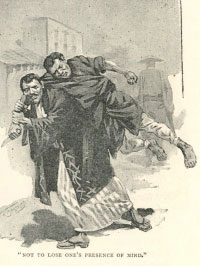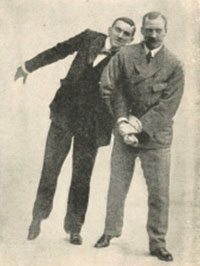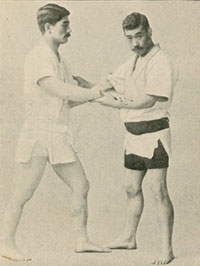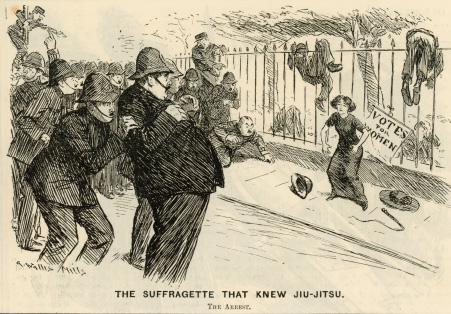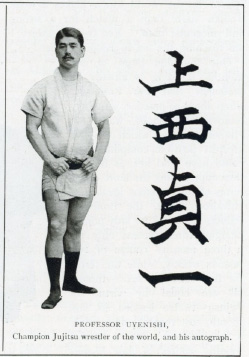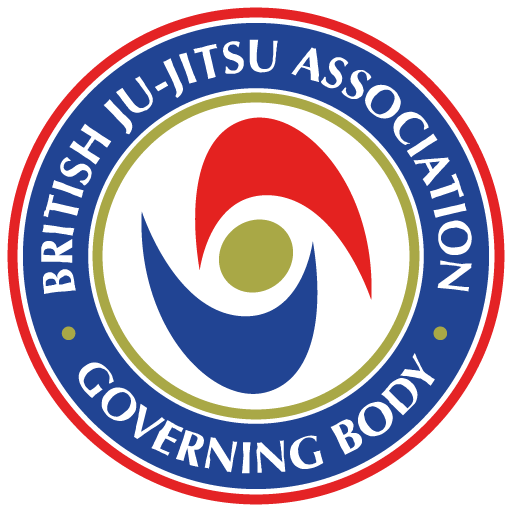
The Origins of Ju-Jitsu in the UK
Perhaps the first mention of Ju-Jitsu in Great Britain was an article published in the ‘Idler’ in October 1892 by G.B. Burgin.
Ju-Jitsu originated in Japan and the first publicly recognized Ju-Jitsu school was formed by Takenouchi Hisamori in 1532. This particular style of martial art used few or no weapons at all and included strikes, throws, holds, and paralysing attacks against the enemy. It was designed to supplement the swordsmanship of the Samurai warrior during combat.
Over the next few hundred years there was a divergence from the weapon forms of fighting to weapon less styles. These styles were developed from the grappling techniques of the weapon styles and were collectively known as Ju-Jitsu.
Perhaps the first mention of Ju-Jitsu in Great Britain was an article published in the ‘Idler’ in October 1892 by G.B. Burgin. It was called: ‘Japanese Fighting: Self Defence by Sleight of Body’ and explored the avenue of using Ju-Jitsu as a form of self-defence within society.
In 1898 Edward William Barton-Wright introduced the practice of Ju-Jitsu in London with instruction delivered by a couple of young Japanese experts called Yukio Tani and Sadakazu Uyenishi (with Tani being brought over to London on the recommendation of Jigaro Kano), both students of the same Fusen Ryu style in Japan. In 1904 Yukio Tani opened what can be considered the first Ju-Jitsu dojo in the UK called the School of Japanese Self Defence, and was located at Golden Square, Piccadilly Circus, London.
The ‘Golden Square Dojo’ has a very important place in British martial arts history and would influence British society in several ways; famously the suffragettes, who, in addition to using Ju-Jitsu as a means of self-defence, used Ju-Jitsu politically to show that women can be the physical equal of men. Furthermore, Tani’s teachings inspired future generations to practise Ju-Jitsu, and more importantly, to practise an ethos of inclusion and equality within the art. It is through Yukio Tani that our British Ju-Jitsu lineage from Fusen Ryu style of JunJitsu in Japan flows.
Students of Tani, namely Jack Britten and Alf Morgan, around 1924 moved to Liverpool and established their own Ju-Jitsu clubs. Later both, Mikinosuki Kawaishi and James Blundell also opened a club in Liverpool, with support from Tani. Under the ethos of Tani, Soke Blundell (10th Dan) (with the help and support of other passionate Ju-Jitsu founding members), formed The British Ju-Jitsu Association, which was given the recognition by the government of being the only Ju-Jitsu martial arts recognised in this country, in the 50’s. Soke Blundell was made chairman of the board, a position he held until the early 1980s.
Soke Blundell was the first person to introduce a belt system that emphasised a Progressive Syllabus. The Progressive Syllabus was designed to allow all students to safely engage with a wide variety of techniques from the day they joined the art, with clear advancement acknowledged through a series of progressive belts from white to black. The aim was to provide opportunities to enhance skills, techniques, and fitness, whilst at the same time, building confidence, discipline and developing teamwork and leadership qualities.
Through the lineage of these early clubs, three men, namely Robert Clarke, James Blundell and Richard Morris joined together with a formalised Ju-Jitsu syllabus and grading system (still in use by many clubs today) and developed the World Ju Jitsu Federation in 1976, of which the British Ju Jitsu Association was the British branch. It included other affiliated Ju-Jitsu associations from around Great Britain and embedded the extensive range of styles taught within the UK.
In 1988 students, namely, Professor Kenneth Blundell, Professor James Pape & Professor Martin Dixon, of these three pioneers of British Ju-Jitsu formed the British Ju-Jitsu Association, who together approached the British Sports Council (now the UK Sports Council) and gained recognition to become the single Governing Body for the Martial Art of Ju-Jitsu in this country in 1993. The Association continues to represent the many differing styles of Ju-Jitsu and the historical ethos set out by the Tani’s teachings of inclusivity and equality, under the Governing Body objectives of;
- To organise, promote, regulate, and control the safe practice of Ju-Jitsu in the United Kingdom of Great Britain and Northern Ireland.
- To make provision for the development of the activity within each of the Home Countries; England, Wales, Scotland, and Northern Ireland.
- To Affiliate to, assist, co-operate with, and support National and International organisations having objects approved by the BJJA GB.
- To act as the Advisory Body on all matters appertaining to the practice of Ju-Jitsu, through liaison with statutory and voluntary bodies and other relevant bodies.
- To provide members with such services and support as may be available through their membership of the BJJA GB
Within this context the Governing Body is responsible for the development of a popular and competitive element of Ju-Jitsu known as Sport Jitsu, where students from all styles of Ju-Jitsu can compete in elements known as Kata, Pairs Demonstrations, Continuous Fighting (sparring, throwing & ground fighting) and Random Attacks, without the distinction of gender, which at the time was not seen in any other martial arts or sports. The Kata, Pairs Demonstration and Random Attacks categories were developed with the intent of providing a level playing field that was not characterised by gender, with each individual competitor being judge on the merit for skills, technique, and street effectiveness within the separate categories.
The current system of Sports Ju-Jitsu, under the BJJA GB Chairman, Professor Martin Dixon has over the years provided opportunities for fostering character development, sportsmanship, and teamwork skills through teaching students how to cope with challenges, respect others, and cooperate with teammates. Alongside socializing and having fun with peers who share a common interest, it has also reduced stress and improved self-esteem by offering a positive outlet for emotions and a sense of accomplishment.
BJJA GB progressively developed a national coaching scheme which, by way of new standards, enlightened technique, and an ever-widening circle of coaches, reached, and continue to, into schools, clubs and associations in every corner of the country.
BJJA GB’s whole philosophy is based around “The Six Pillars of Society” by encouraging our members to understand and develop “Trustworthiness, Fairness, Respect, Responsibility, Caring, and Decision making”, which all go to making us all better citizens. Thus, BJJA GB is able to bring together and represent clubs with different styles of Ju Jitsu, by focussing on what they have in common. Hence the term used to describe the organisation as a ‘broad church’.
